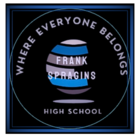A self-paced independent learning program - leading to a High School Diploma is offered through flexible hours.
Safe and Caring Schools
All FMPSD facilities include; Safe and Caring Schools includes: Tribes Learning Community, Anti-Bullying Programs, Bus Safety, Crisis Management. Please contact individual schools for more information.
Inclusive Programming
Our philosophy is to ensure that all students with special needs have opportunities to be in the regular classrooms whenever possible. Please contact individual schools for more information.
Mental Health Supports
Mental health supports in schools are integrated with services provided through government (Alberta Health, Child & Family Services) and through community agencies. School counselors across the district provide both individual and group interventions that focus on identifying core problem areas and supporting classroom learning.
First Nations, Métis and Inuit Education
Alberta Education is committed to improving education outcomes for First Nations, Métis and Inuit (FNMI) students and to closing the gap in education achievement between FNMI and other provincial students. We work with First Nations and Métis leaders and communities to engage FNMI parents and families to support student success through collaborative partnerships with schools and by developing culturally relevant programs, resources and student supports. Please contact individual schools for more information.
RAP - Registered Apprenticeship Program
Earn while you learn
Students begin RAP in grade 10 or 11 and must apply for a placement in a trade. The students will know if they have been accepted into the program by late spring. The following school year the student will spend one semester in the workplace and one in school, completing their core subjects, toward a high school diploma.
How do I become a RAP student?
- In the fall, students will fill out their applications with CAREERS The Next Generation: https://www.careersnextgen.ca/get-an-internship/registered-apprenticeship-program-rap/
- Once they get their applications in, they will build a Career Portfolio based on the trade you hope to receive a placement in. This includes a resume, cover Letter, career research, safety courses, and other relevant material. A completed portfolio will earn the student a high school credit.
- Students will also plan out the subjects they will need in order to earn a high school diploma.
- In the spring of the same school year, students will be interviewed by participating companies in the program. Potential students prepare for the interview. Based on the score of the student’s interview will indicate if the student is to have a placement the following school year. Placements are not guaranteed. The programs are competitive and limited spots are available.
- Students are expected to complete HCS 3000 - Workplace Safety Systems, Common Safety Orientation (CSO) and Construction Safety Training Systems (CSTS), and First Aid/CPR. Instrumentation Technician requires Chemistry and Physics 30.
- Attendance and grades may be taken into account before a placement is earned
- Science 10 and Science 20, Chemistry 20 or Physics 20.are required for the program.
- For each semester a student works, they will earn 20 credits.
Things to consider…
- Students may have the desire to be in a placement but they must have the maturity to work with adults.
- Some students choose to do a course in summer school to alleviate the workload of 4 courses in one semester.
- Some of the placements begin in early August. Please be aware you may have to change your summer plans.
- Students are asked to choose two trades of interest in case there is a shortage of placements in their area of interest.
- RAP placements are competitive with all four high schools. Students and placements vary from year to year. Keep yourself competitive by having solid marks, great attendance and staying in touch with your Off Campus Coordinator
- For more information contact our Off Campus Coordinator
Work Experience Credit Hours
Work Experience is an opportunity to earn high school credits while working in a part time job or volunteering.
How can I earn credits while working?
- Students can earn one credit for every 25 hours worked. Students must log a minimum of 75 hours (3 credits) in order to earn credits.
- Students can earn up to 10 credits at each grade level for a total of 30.
- Up to 15 Work Experience credits can be used to meet the graduation requirement of 100 credits.
- In order to earn credits students must have HCS 3000, complete the Work Experience Package and return it to the Off Campus (Work Experience) Coordinator
- As a way to track a student’s working hours they will need to bring in a document stating the hours worked. This can be in the form of a letter or monthly calendar signed by the employer. Paystubs can also be used as well as an email from the employer.
- Volunteer hours can be used in conjunction with work experience hours or on their own. Students can print off the appropriate form on pick one up from the Off Campus (Work Experience) Coordinator. If you know you are going to be volunteering at an event please bring the form with you so that your supervisor can evaluate you.
- Work Experience hours can only be passed in during the school year in which the student completed the work. September 1st-June 15th is considered one school year. This year students will also be able to gain seperate summer credit hours.
- For more information contact our Off Campus Coordinator
Speech and Language Programming
Speech Language Pathologists and Speech Language Educational Assistants provide individual, group and classroom-based interventions that focus on speech and language development for eligible children.
